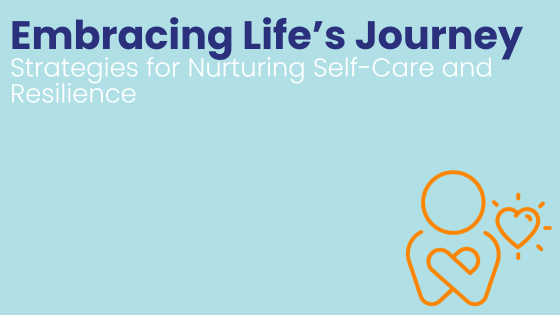Today’s guest blog is written by Ann MacPhetridge, Promega. Reposted from the ISHI Report with permission.
Forensic DNA analysts play a vital role in the criminal justice system, helping to solve crimes and bring perpetrators to justice. Due to the high stakes’ nature of the work, it’s common for forensic scientists to experience immense stress, which can lead to exhaustion, depression and health issues. Building and maintaining resilience and coping skills can help you effectively manage work related stress and trauma.
In a previous article, we discussed stress, trauma, and burnout within the forensic field and resources to learn more about the impact they have on analysts within the field.
Developing resilience takes time and practice and we at ISHI are dedicated to providing on-going support and resources for those within the community. There are several things that forensic DNA analysts can do to further develop resilience. Some helpful tips are below.
Build a strong support system.
Having compassionate friends, family members, and colleagues can be invaluable when dealing with stress and trauma. These people can provide you with emotional support, practical help, and a listening ear. Offer support to others in return. Feeling connected helps combat the loneliness and isolation that often comes with high pressure work.
Prioritize your wellbeing.
Take care of yourself physically. Eating a healthy diet, getting regular exercise, and getting enough sleep are all important for maintaining your physical and mental health. Engage in relaxing activities such as reading, meditation, or spending time with friends and family.
Don’t let work consume you. Set boundaries and learn to disconnect after work hours. Use your vacation time and take regular breaks during the day. Breaks are essential for staying focused. I’ve also learned to give myself grace when things don’t go as planned. Nobody’s perfect.
If you’re involved in a complex project such as the validation of a new instrument or kit, work with others to break the project into smaller, attainable tasks. I find it helpful to set daily and weekly goals to give myself a sense of control and accomplishment. And be sure to celebrate even the small wins!
Develop healthy coping mechanisms.
There are a number of healthy coping mechanisms that can help you to manage stress, such as relaxation techniques, yoga, mindfulness, and journaling. Spend time outside every day. There have been numerous studies about the benefits of being outside for 30 min a day to help combat stress and build resilience. You can read more here.
As Eckhart Tolle said, “We depend on nature not only for our physical survival, we also need nature to show us the way home, the way out of the prison of our own minds.” One of my favorite things to do after a particularly stressful day is to take my golden retriever to the dog park. Seeing the sheer joy on his face as he greets other dogs and runs free in the sunshine reminds me to live in the moment and enjoy the little things.
Seek professional help if needed.
If you are struggling to cope with stress or trauma on your own, don’t be afraid to seek professional help. Seeking counseling doesn’t mean you can’t handle the work—it means you value your mental health. A therapist can provide you with support and guidance as you work to develop resilience.
In addition to the general tips above, there are a few things that forensic DNA analysts can specifically do to develop resilience:
- Practice gratitude. I know, it seems cheesy, but it works. If you’re feeling stressed, stop for a moment and think of 3 things you are grateful for. Your brain can’t focus on the negative while it’s practicing gratitude. This practice can help you maintain a healthy perspective when feeling overwhelmed. Your list can be as simple as 1) the line at Starbucks was shorter than usual, 2) the parking gods smiled on me this morning, or 3) my work bestie texted me a hilarious meme about cats. Try it for 10 days and see if your outlook and stress management skills get a boost.
- Talk to other analysts. Talking to other forensic DNA analysts who have been through similar experiences can be a great way to get support and advice. Mentor less experienced analysts, but also use senior analysts as resources—support each other through teamwork.
- Take advantage of resources offered by your workplace. Many workplaces offer confidential resources to help employees manage stress and trauma, such as employee assistance programs (EAPs) and support groups.
- Become involved in the forensic DNA community. Getting involved in the forensic DNA community can help you to feel connected to other professionals in the field and to learn about new resources and support services.
By following these tips, forensic DNA analysts can develop resilience and thrive in their demanding but rewarding profession. Building resilience takes time, but the payoff is worth the effort. The ability to thrive under pressure and finding purpose can help you stay engaged, a key success factor in the work world.
I found this website to be a great resource for learning how to build resilience and meaning: https://greatergood.berkeley.edu/. The Greater Good Science Center at the University of California-Berkeley studies the psychology, sociology, and neuroscience of well-being and teaches skills that foster a thriving, resilient, and compassionate society.
Sources
vitaldollar.com/independently-wealthy/
FOr more tips on resilience, watch our interview with Allison Massari.
With deep understanding and authenticity, Allison shares profound and practical insights of how she emerged from extreme adversity after burning alive to find a life that is better than before, more peaceful and fulfilling than before. Addressing topics of burnout, employee retention, self-leadership, compassion, and building courage—she emphasizes the importance of taking charge of your life through meaningful actions and finding purpose in unexpected places—while giving yourself permission to be human and to be a work in progress.
watch on our youtube channel


